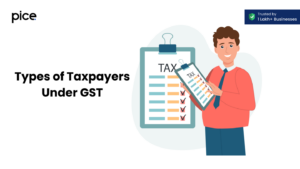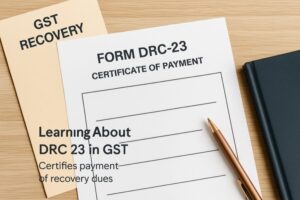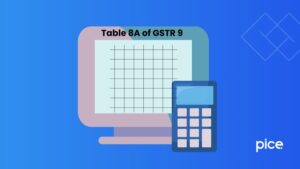E-commerce GST Registration | A Complete Guide
- 10 Jan 25
- 9 mins

E-commerce GST Registration | A Complete Guide
- What is Goods and Services Tax (GST)?
- Who Will Collect TCS Under GST?
- GST Registration Rules for Those Liable to TCS
- Cancellation of GST Registration for E-Commerce Operators
- GST Registration for People Supplying Online Information From Outside India
- What Are the Benefits of Registering for E-Commerce Businesses?
- When Can an E-Commerce Businesses Cancel GST Registration?
- What Is the Procedure for Cancelling GST Registration?
- What Is the Fee for GST Registration?
- Conclusion
Key Takeaways
- GST registration is mandatory for e-commerce businesses under the CGST Act.
- E-commerce operators must collect 1% TCS on every transaction.
- OIDAR services are taxable under GST with revised definitions from 2023.
- GST benefits include input tax credit, simplified compliance, and market expansion.
- GST registration can be canceled for closure, transfer, or low turnover.
Section 2(44) of the CGST Act, 2017 explains e-commerce as the supply of goods or services by means of an electronic network. Likewise, Section 2(45) of the act defines an Electronic Commerce Operator (ECO) as any person who runs, operates or controls an electronic commerce platform or device or system for electronic commerce.
The situation in the Indian e-commerce market is developing at a very fast pace, which allowed the country to take the second place in the global rankings by e-commerce turnover after the USA. Realising such growth and the tax implications emerging therefrom, the Central Board of Excise and Customs (CBEC) has simplified the processes for e-commerce GST registration to support sellers in compliance with tax laws.
What is Goods and Services Tax (GST)?
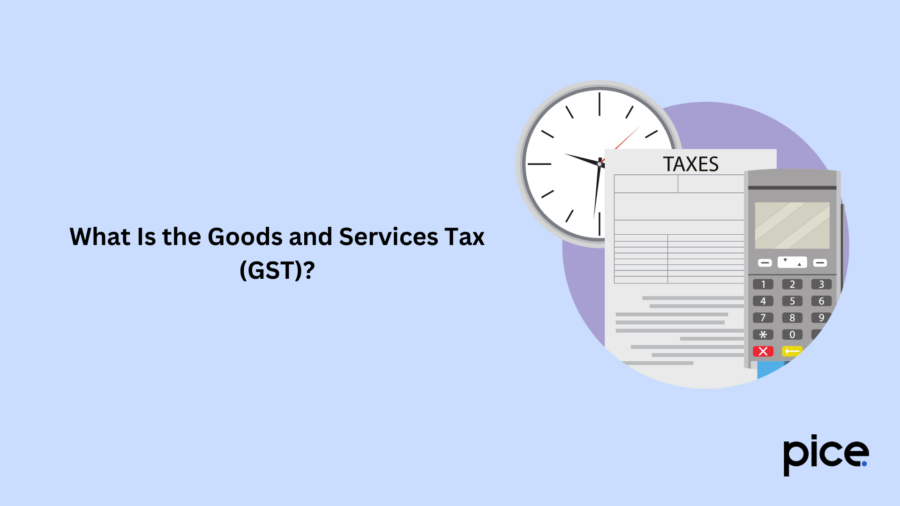
GST, or Goods and Services Tax, is an indirect tax applied at the point of final consumption, making it a destination-based tax. It is a multi-stage and comprehensive tax liability, imposed at each stage of the sale or purchase process.
As per section 24(ix) & (x) of the Central Goods and Services Tax Act, 2017, every e-commerce seller, trader or aggregator is required to obtain GST registration in India for providing goods or services through internet. However, they have to exclude certain categories. These e-commerce operators are expected to collect and pay 1% of the total tax for each sale as 0.5 % CGST and 0.5% SGST.
Who Will Collect TCS Under GST?
As per Section 52 of the CGST Act, e-commerce platforms are obligated to collect and deposit a 1% tax on every transaction. Before making payments to merchants or vendors who sell goods or services online, these platforms deduct 1% of the transaction value as tax.
To claim this tax collected by e-commerce aggregators, all merchants or sellers engaged in online marketplaces must obtain GST registration, irrespective of whether their turnover falls below the prescribed threshold limit.
It is important to note the following points:
Service providers earning less than ₹20 lakh and not using an e-commerce operator liable for tax collection at source are exempt from mandatory GST registration.
E-commerce operators governed by Section 52 of the CGST Act are not eligible to opt for the composition scheme.
GST Registration Rules for Those Liable to TCS
According to Section 24 of the CGST Act, GST registration is mandatory for e-commerce businesses in India. Individuals who are required to collect TCS must apply for registration at a facilitation centre authorised by the Commissioner or electronically through the GST portal. The application, completed using Form GST REG-07, must be signed or verified using an Electronic Verification Code (EVC).
As stated in CGST Rule 12(1A), e-commerce operators without a physical presence in the state or union territory where their operations take place should specify that state in Part-A of Form REG-07. If the principal place of business is located in a different state, it should be mentioned in Part B of the same form.
On confirmation of the details, the proper officer will register and request a registration certificate in GST REG-06 within 3 working days from the date of the application.
Cancellation of GST Registration for E-Commerce Operators
When the GST officer finds through an investigation or proceeding that there is no longer a requirement for an individual to collect TCS, they will process the cancellation of GST registration. The officer will electronically notify the individual about the cancellation via Form GST REG-08. Following CGST Rule 22, the officer will apply the similar procedure used for normal taxpayers during the cancellation process.
GST Registration for People Supplying Online Information From Outside India
Services categorised as Online Information and Database Access or Retrieval (OIDAR) are those delivered through the internet. These services rely heavily on automation, with minimal human involvement, and depend entirely on information technology.
With the update in Budget 2023 effective from February 1, 2023, the meaning of OIDAR has changed. The phrase "services essentially automated and involving minimal human intervention" has been removed. Now, OIDAR indicates services whose delivery is enabled over an electronic network or the internet by information technology.
Examples of services falling under OIDAR include:
- Delivery of digital content such as e-books, music, movies, and software via the internet.
- Online gaming platforms
- Cloud services
- Online advertising
- Web-based services offering social networking, trade statistics, matrimonial services, legal and financial data, etc.
- Giving information or data, which is recoverable by any individual via a computer network.
This update also indicates that simply using the internet to communicate or to provide service delivery does not necessarily make a business an OIDAR provider.
Moreover, there are some services which are considered non-OIDAR services. these are as follows:
- Electronic processing of goods
- Physical goods like books, newspapers, newsletters, and legal or financial advice via email
- Booking services for events, hotel stays, or car rentals
- Educational or professional courses delivered online by a teacher
- Physical repair services for computer equipment are conducted offline and software or hardware repairs are performed remotely via the internet.
- Advertising services through traditional media like posters, TV, newspapers, etc.
What Are the Benefits of Registering for E-Commerce Businesses?

GST registration offers several advantages for e-commerce companies, including:
Input Tax Credit
E-commerce sellers can claim an input tax credit with GST registration. This allows them to offset the GST paid on inputs against the GST collected on sales.
Simplified Tax System
GST simplified taxation for e-commerce sellers by replacing multiple taxes with a single tax, making it easier to comply with tax laws.
Access to Wider Markets
GST enables e-commerce sellers to offer their products and services across state borders without incurring additional taxes, helping them expand their market reach.
Enhanced Transparency
GST relies on digital systems for invoicing and return filing, increasing transparency and reducing the chances of tax evasion.
Improved Competitiveness
By eliminating the cascading effect of taxes, GST helps e-commerce sellers reduce costs, making them more competitive in the market.
When Can an E-Commerce Businesses Cancel GST Registration?
An e-commerce operator may request the cancellation of GST registration under the following circumstances:
- Permanent Closure: GST registration can be cancelled if the e-commerce business has been permanently shut down or discontinued.
- Business Transfer: In cases of merger, acquisition, transfer or demerger of the business to another entity, cancellation may be initiated.
- Change in Business Structure: If the legal structure of the business changes, resulting in a new PAN, cancellation is required.
- Turnover Below Threshold: If the annual turnover drops below the mandatory registration limit, the operator can apply for cancellation.
What Is the Procedure for Cancelling GST Registration?
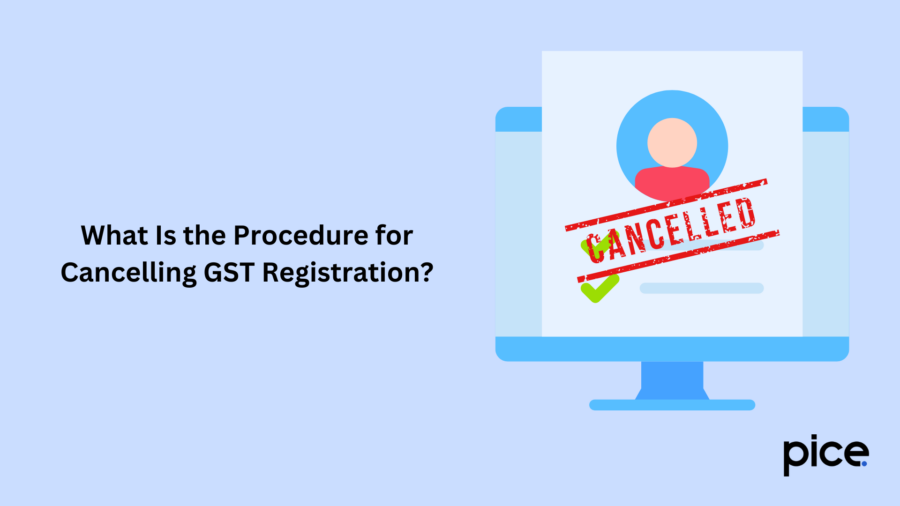
Here are the steps you need to follow for cancelling e-commerce GST registration:
- Submit Form GST REG-16: Access the GST portal and submit Form GST REG-16 to initiate the cancellation process.
- State the Cancellation Reason: Clearly mention the reason for cancellation in the form.
- Settle Dues and File Returns: Ensure that all pending GST returns are submitted and any outstanding tax dues are paid in full.
- Application Review: A tax officer will review the submitted application and documents. Upon approval, they will issue a cancellation order using Form GST REG-19.
What Is the Fee for GST Registration?
Currently, there is no fee payable when applying for GST registration on the GST portal and the process is fully online. However, it can take some time and effort to fill the GST registration and the process can be quite complicated. To make it even easier, there are some sites which help in assisting you to register an account with little or no hassle and within the shortest time at that.
In addition to assisting you in the registration process of GST, they assist you in filing annual returns and other e-commerce operators' GST compliance helping you to start and run your business more easily in India.
Conclusion
E-commerce GST registration is essential for expanding your business, ensuring tax compliance and claiming input tax credits. By registering, you simplify taxation, gain access to wider markets and improve your competitiveness. Utilise the GST benefits and try to take your online business to a higher level with the right registration.
💡If you want to streamline your payment and make GST payments, consider using the PICE App. Explore the PICE App today and take your business to new heights.
FAQs
 By
By 





